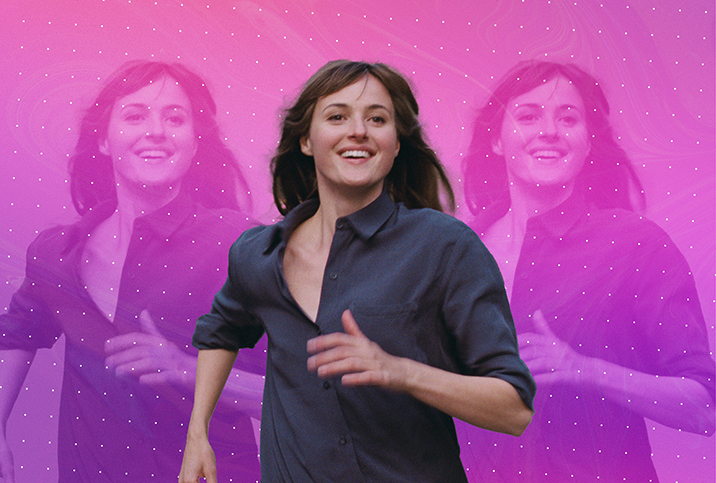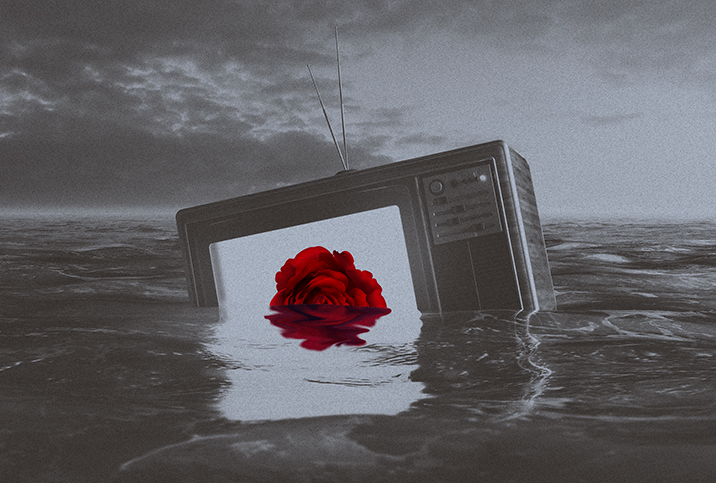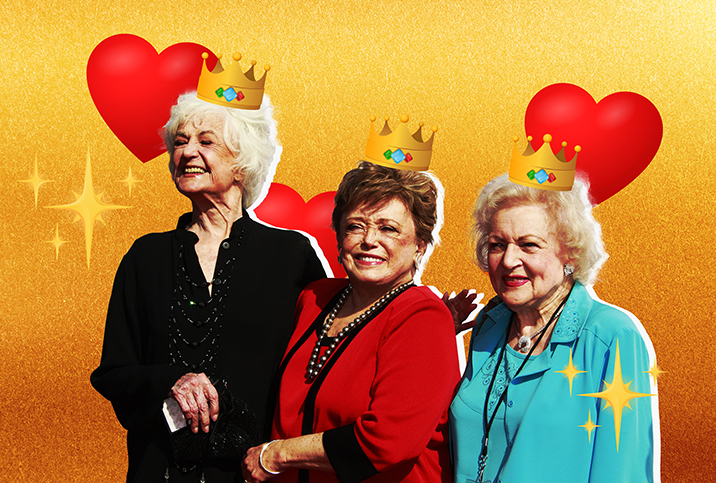Sex, Love and Identity in 'The Worst Person in the World'

"Where's the menstrual period? Female orgasm and desire?"
So asks an exasperated Julie in one early scene of Joachim Trier's "The Worst Person in the World." Why does art insist on focusing on male pleasure?
"Can you womansplain it to me?" comes the smug retort from her boyfriend's friend.
"The Worst Person in the World" is the third and final entry in what is now being referred to as Trier's Oslo Trilogy. His first two films, "Reprise" (2006) and "Oslo, August 31st" (2011), both center around the male experience of Norway's capital. In his third installment, Trier's days of filmic mansplaining are done. Instead, he offers up the female perspective.
Broken down into a prologue, 12 chapters and an epilogue, "The Worst Person in the World" has a novelistic feel but focuses less on plot and more on emotion and character.
At the center of this exploration is Julie (played by Renate Reinsve). In the short prologue, we see Julie's 20s play out in the space of a few densely packed minutes. She studies medicine, then gives that up to study psychology, then gives that up to become a photographer. With each new endeavor, Julie transforms. New hair, new style, new social life, new boyfriend, new Oslo. But each time, she reaches a moment when it all suddenly seems too permanent, too constrictive. "This was wrong," the voiceover explains. "This wasn't her." She backs out of her newly formed identity and crafts a new one.
Rather than defining the experience of contemporary womanhood through these incidental external 'issues,' he prefers to look inward, keeping the politics of both gender and sex peripheral.
When Julie meets Aksel (Anders Danielsen Lie), a slightly older comic-book author, he has the foresight to predict the repetition of the pattern. She's still young, he says. She isn't ready to settle into a relationship for good—she doesn't even know what she wants. More importantly, she doesn't know who she wants to be. Of course, the premonition is ignored and Julie moves into his apartment in the next scene.
And so Trier sets the scene for Julie's continued search for the self through romance. For the most part, the search plays out on a highly introspective level. The camera lingers on Julie's face as she takes in the world around her, wondering where she fits in.
Concerns about the outside world are seemingly incidental to her inner search. The story merely touches upon the "issues" of the moment. There is, of course, Julie's brief exclamation about the male centricity of art. In one scene, Aksel gets into a heated debate with a radio interviewer about his use of gender stereotypes in his comic books. In another scene, Julie pens a viral essay entitled, "Oral Sex in the Era of #MeToo," in which she muses, "Can you be a feminist and enjoy being mouth-f---ed?"
Julie, Trier implies, exists in the real world, but her desires are not defined by it. Rather than defining the experience of contemporary womanhood through these incidental external "issues," he prefers to look inward, keeping the politics of both gender and sex peripheral.
What remains: a feminine picture of romance and desire
Take, for instance, the film's best sex scene—a scene, incidentally, that involves no actual sex. Julie crashes a wedding after leaving Aksel's book launch early. There, she meets Eivind, a young man whom she knows nothing about. There's an instant spark, an electric, bone-deep shock of recognition.
"Nothing's gonna happen," Julie says with a knowing smile. "Of course not," Eivind murmurs back. What follows is a shockingly intimate pas de deux of "not cheating." She drinks his beer. He touches her arm. They inhale each other's sweat. They reveal their darkest secrets. They watch each other pee. In what is already an iconic cinematic moment, he inhales her secondhand cigarette smoke.
It's intimate, romantic, shocking, sexual, satisfying. It's a "sex scene" without the physical act of sex, such as the thrusting and humping so often seen on our screens. Julie tells Eivind her deepest secret: She "likes it when it's not too hard." Instead, she likes the feeling of "making it hard." "The Worst Person in the World" presents us with a feminine version of sex that hinges on desire, buildup and yearning.
Julie's relationship with her body
On her 30th birthday, Julie scans her mother's walls, which are filled with photos of her family tree. At 30, the narrator says, Julie's grandmother already had three children. Her great-grandmother had six. Her great-great-grandmother had seven, two of whom had already died of tuberculosis. How does Julie fit into this history of motherhood?
In another scene, Julie gets high on mushrooms and spirals into a nightmarish hallucinogenic trip: Her body becomes old. She nurses a baby from her sagging breast. She pulls out a soaking tampon and smears her menstrual blood on her face like war paint. There is, it seems, an ever-present war going on inside Julie between the desire for freedom and the societal pressure to "use" her fertility before it's too late—to mature into full womanhood.
Trier's version of sex and romance in "The Worst Person in the World" has a certain haziness. During the unforgettable breakup scene, Julie accuses Aksel of attempting to analyze and name her every thought and feeling. "Sometimes I just want to feel things," she says. Love is not this or that. It can't be defined or pinned down or understood. "Yes, I do love you," she says. "And I don't love you."
Julie's resistance to defining love, sex or even herself is a feeling to which many millennial women will relate. For Julie, each new romance offers a new identity that she can slip into like a new sweater. But it's never quite enough. Julie's great-grandmothers were defined by the men with whom they coupled and, ultimately, made a family. But for millennial women like Julie, being defined by a relationship can lead to feelings of unease.
The film ends the only way it can: with Julie in her own apartment with her own work and her own company. As Julie puts it in her essay, the nature of oral sex (and romance in general) has changed in the era of #MeToo. Indecision and romantic confusion is actually a natural consequence—it does not, in fact, make you the worst person in the world. Seeing this millennial experience "womansplained" on screen is a breath of fresh air.


















